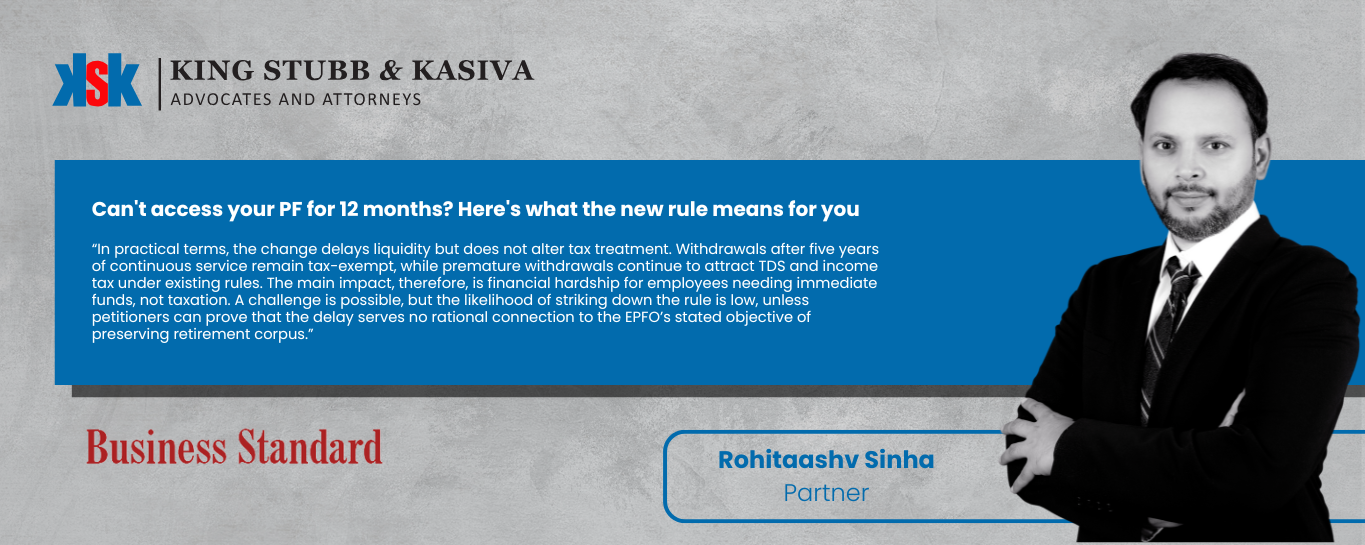EPFO’s New Withdrawal Rule Sparks Debate on Employee Rights: Insights from Rohitaashv Sinha

The recent change introduced by the Employees’ Provident Fund Organisation (EPFO), which restricts employees from accessing their Provident Fund (PF) accounts for 12 months after leaving employment, has drawn significant attention for its impact on employee liquidity and financial autonomy.

In a Business Standard article, Rohitaashv Sinha shared his legal perspective on the development, noting: “While the government has justified the change as a move to protect long-term retirement savings, critics argue it curtails employees’ right to access their own money, especially during periods of job loss. The measure could be challenged as arbitrary and disproportionate under Articles 14 and 300A of the Constitution, though courts have historically shown restraint in overturning social-security policy decisions unless a clear abuse of power is established.
In practical terms, the change delays liquidity but does not alter tax treatment. Withdrawals after five years of continuous service remain tax-exempt, while premature withdrawals continue to attract TDS and income tax under existing rules. The main impact, therefore, is financial hardship for employees needing immediate funds, not taxation. A challenge is possible, but the likelihood of striking down the rule is low, unless petitioners can prove that the delay serves no rational connection to the EPFO’s stated objective of preserving retirement corpus.”
Rohitaashv’s analysis highlights the balance between policy intent and constitutional rights, emphasizing that while the rule aims to secure retirement savings, it could impose genuine financial hardship on employees during critical times.
More of KSK’s recent updates: https://www.linkedin.com/feed/update/urn:li:activity:7386650922094948352
By entering the email address you agree to our Privacy Policy.